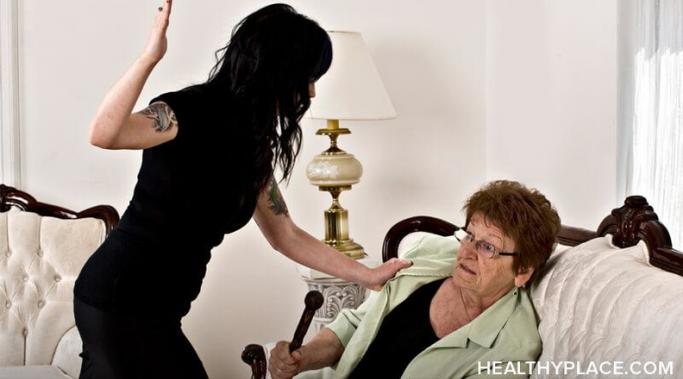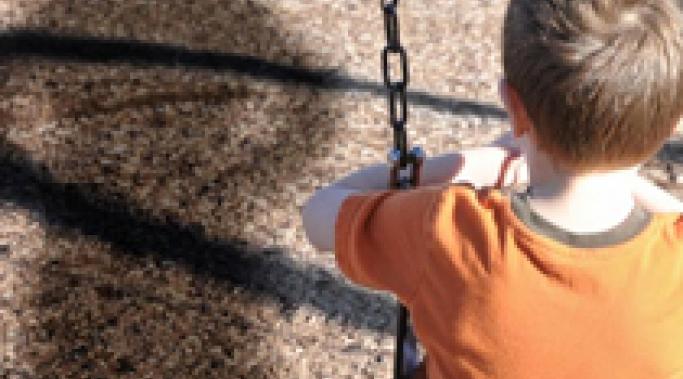Blogs
Loneliness and isolation can tear apart your happiness, but you can prevent it. I work as a peer specialist and I often hear people concerned about feeling lonely or isolated (Mental Illness Is an Isolating and Lonely Disease). Today, I want to share three tips that have helped prevent loneliness and isolation in my life.
People so often assume that those of us with mental illnesses like schizoaffective disorder (SZD) or schizophrenia are violent. The fact is that people with a mental illness are more likely to be the victim of a violent crime than the perpetrator (Appleby, et al., 2001). In the wake of the horrific Orlando shooting, once again mental illness is blamed as a cause for the attack. And, once again, stigma regarding violence among those with mental illnesses, like schizophrenia and schizoaffective disorder, is reinforced.
Self-injury can be addictive but you can recover from self-harm using the 12 steps, among other ways. Because self-harm helps us feel better, even if it is a negative coping skill, it can become a habit. We can become powerless over self-injury. But, like any addiction, a 12-step program can be useful in fighting self-harm behavior and aid self-harm recovery.
"If you can’t be honest you won’t recover from an eating disorder," the woman said while leading group therapy during my inpatient stay at the hospital.
Honesty is a foreign concept to eating disorders. They have a fantastic ability to spin lies. They tell us we’re fat, that we’re rejected, isolated, and alone. They tell us that they’re our best friends and that they’ll never leave us. At first, the statements might fill us with joy – hurray, a best friend who never leaves. But soon, it’s torture – an abusive friend who won’t ever leave. The problem with lies is that they grow with silence. The best way to mute them is to bring them into the light of honesty. Without honesty, you just won't recover from an eating disorder. Here are four vital things to be honest about in your eating disorder recovery.
Parents with mental illness, expect summer transition behaviors from your children. We often underestimate what a huge transition our children experience as they finish up the school year (Help Your Child Feel Confident at the End of the School Year). Their routines change dramatically, as do ours. It is normal for kids to be grumpy, overly tired, and even combative as they work through major transitions in their lives. Parents with mental illness expecting these transitions into summer may have an easier time working with their kids and avoid mental health triggers.
I’m Tiffanie Verbeke and I am the new co-author of Coping with Depression. I’m a freshly-graduated Interpersonal Communication Studies major, coffee addict, avid runner, and music enthusiast. I also pretend to be a good painter (which is an excellent coping mechanism). I have learned and experienced many challenging, wonderful things in my lifetime, but one of my most significant adventures has been learning about my brain. I was officially diagnosed in college with severe depression, anxiety, and mixed state bipolar disorder—a lovely combination of barriers to achieving optimal mental health.
Developing emotional resilience does not exempt you from life’s stressors. It helps you maintain hope when you have to face those stressors (Resilience: Getting Up When Mental Illness Knocks You Down). If you can learn how to bounce back from difficulty, you will adapt rather than succumb to adversity. Learn how to develop your emotional resilience. Here's how.
Can you stay sober at a wedding? I think so. Weddings can present a challenge for sober folks (Sobriety Becoming the New Norm). Here are some tips for staying sober during wedding season.
There are many myths about child sexual abuse but I'm going to focus on three (What Is Child Sexual Abuse?). Three myths about child sexual abuse are that all abused children tell someone, all victims of childhood sexual abuse have physical trauma, and all victims of childhood sexual abuse will grow up to become sex offenders. Let's take a closer look at these child sexual abuse myths.
Fireworks and posttraumatic stress disorder (PTSD) are a problem July 4th. I enlisted in the Army during the height of the Iraq War and was high on the list to go. Long story short, a health condition forced my discharge, but not before I watched people suffer nervous breakdowns and try to piece themselves back together in a hostile psychiatric system (What Is Combat PTSD?). That's one thing that weighs heavily on my heart as the Fourth of July approaches--the number of veterans with posttraumatic stress disorder who will be triggered by fireworks.









